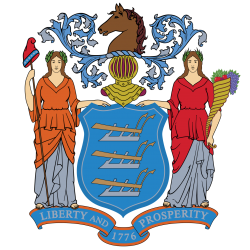
For our 2024 rankings, the research team at Nursing Schools Almanac collected data on nearly 3,000 nursing schools and campuses throughout the United States. We evaluated each school on three dimensions:
- The institution’s academic prestige and perceived value
- The breadth and depth of nursing programs offered
- Student success, particularly on the NCLEX licensure examination
We then combined these assessments into an overall score and ranked the schools accordingly. For a detailed description of our assessment methodology and dimension weights, please see here.
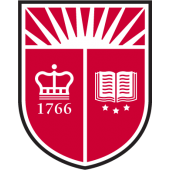
#1: Rutgers, The State University of New Jersey
The Rutgers School of Nursing is New Jersey’s largest institution of nursing education, with more than 1,600 students across campus sites in Newark, New Brunswick, and Blackwood. Undergraduates may select from three BSN pathways (traditional, accelerated second degree, RN-to-BSN) as well as a post-baccalaureate school nurse certificate. The school graduates more than 300 students annually from its prelicensure BSN programs, maintaining a superb 93% first-time NCLEX pass rate over the past three years. At the graduate level, Rutgers offers an MSN with informatics and leadership concentrations, seven post-master’s certificates, eleven areas of DNP specialization, and a PhD program with post-baccalaureate and post-master’s entry points.
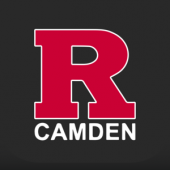
#2: Rutgers, The State University of New Jersey - Camden
The Rutgers School of Nursing became the fourth school on the Rutgers Camden campus in 2011, but their experience in nursing education extends almost forty years. Undergraduates can pursue a traditional prelicensure BSN, an accelerated second degree, or an RN-to-BSN pathway with both on-campus and online tracks. BSN graduates have performed well on the NCLEX licensure examination; for example, 93% of graduates have passed the exam on their first attempt over the past three years. BSN-prepared graduate students can pursue a DNP in two nurse practitioner specializations (family and adult-gerontology primary care), while MSN-prepared nurse practitioners can enroll in a post-master’s DNP track. Rutgers nursing students have access to clinical learning at more than a dozen prominent organizations in the area.
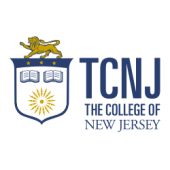
#3: The College of New Jersey
The Department of Nursing at The College of New Jersey has earned an NLN Center of Excellence designation for enhancing student learning and professional development. BSN students have achieved an impressive 93% first-time NCLEX pass rate over the past eight years. Moreover, 100% of BSN graduates that seek fulltime employment are placed within six months. Class sizes are small: the typical nursing class has 15 to 30 students, and the school limits clinical groups to a maximum of eight students. TCNJ also offers MSN programs for aspiring adult, family, and neonatal nurse practitioners; clinical nurse leaders; and school nurses.
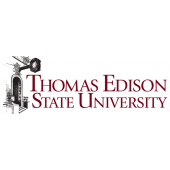
#4: Thomas Edison State University
The W. Carey Edwards School of Nursing at Thomas Edison State University offers flexible, self-paced programs for students seeking an alternative to traditional campus-based instruction. Options include a second degree BSN program, an MSN degree with several specializations, RN-to-BSN and RN-to-BSN/MSN degree completion pathways, and a DNP program. The second degree BSN is a 12-month program designed for adults who have already earned a non-nursing bachelor’s degree. TESU graduates have maintained an impressive 96% pass rate on the NCLEX licensure examination since 2013. The MSN program offers tracks in nursing administration, education, and informatics. The DNP has a specialty option in systems-level leadership and may be completed online in just 18 months.
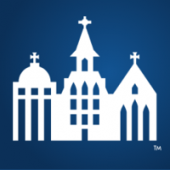
#5: Seton Hall University
Seton Hall University’s College of Nursing was established in 1937 as New Jersey’s first college of nursing. The university continues to lead in nursing scholarship, teaching, and practice. Indeed, Seton Hall has educated approximately one third of all New Jersey nurses and is one of the few universities in the nation approved for Army ROTC nursing candidates. In addition to New Jersey’s first BSN program, the college boasts one of just two nursing PhD programs in the state. Seton Hall typically graduates 80-120 students annually from its two BSN tracks (traditional undergraduate and second degree accelerated), with a stellar 94% first-time NCLEX pass rate over the past three years. The college also offers an RN-to-MSN bridge, four online MSN specializations, three nurse practitioner post-master’s certificates, and a post-master’s DNP with both direct care (advanced practice) and indirect care (administration and leadership) options.

#6: Monmouth University
Monmouth University is home to the Marjorie K. Unterberg School of Nursing and Health Studies. The school’s Department of Nursing offers a number of degree options, including two BSN pathways (prelicensure, RN-to-BSN), two MSN pathways (traditional, RN-to-MSN), and a 36-credit online DNP. Monmouth also offers graduate certificates in forensic nursing and school nursing, along with post-master’s certificates in nursing education and several popular nurse practitioner fields (adult-gerontological, family, psychiatric-mental health). All nursing students are members of the Monmouth University Professional Nurses Association. Top BSN and MSN performers can also apply for membership in the Lambda Delta chapter of the Sigma Theta Tau nursing honor society.
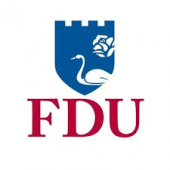
#7: Fairleigh Dickinson University
The Henry P. Becton School of Nursing & Allied Health at Fairleigh Dickinson University has educated nursing students since 1952. The school offers programs at both the Metropolitan and Florham campuses of FDU. The Metropolitan campus houses a full breadth of nursing programs including three BSN pathways, an MSN degree with five clinical tracks and three non-clinical tracks, five post-master’s certificates, and a DNP program with several entry points. The Florham campus focuses its nursing education on a traditional BSN degree and an MSN degree with two nurse practitioner specializations (adult gerontology, family psychiatric / mental health). Over the past five years, the university’s BSN graduates have achieved a 94% first-time pass rate on the NCLEX licensure exam, including a perfect 100% pass rate the past two years.
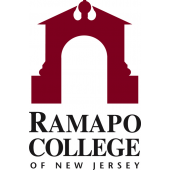
#8: Ramapo College of New Jersey
Ramapo College of New Jersey graduates a class of 70-90 prelicensure BSN students each spring. These students have excelled on their licensure exams in recent years. The school has achieved an NCLEX pass rate higher than 90% for seven consecutive years, including a stellar 99% pass rate for the class of 2019. Ramapo College also offers an RN-to-BSN program and an MSN focused on nursing education. The college maintains a clinical partnership with the Valley Hospital, which is designated a magnet hospital by the American Nurses Credentialing Center. In addition, Ramapo students have access to a well-equipped learning center with two designated computer labs, four patient stations, and a patient simulator.

#9: Felician University
Founded as Immaculate Conception Normal School almost a century ago, Felician University is one of 24 Franciscan universities in the United States and the only one in New Jersey. The School of Nursing offers three BSN pathways (traditional, accelerated second degree, RN-to-BSN), three MSN specializations (adult-gerontology nurse practitioner, family nurse practitioner, nursing administration), an RN-to-MSN online fast track, and a post-master’s DNP program. Graduate certificates are also available in all three MSN specialties. Felician students learn and work in the Barbara J. Toscano Nursing Resource and Simulation Center, a state-of-the-art skills lab where they can apply their nursing skills in a realistic healthcare environment. Since 2013, Felician’s BSN graduates have achieved an excellent 89% first-time pass rate on the NCLEX national licensure exam.
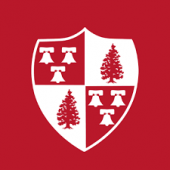
#10: Montclair State University
Montclair State University serves 21,000 students through seven distinct schools. The School of Nursing offers three programs: a new four-year prelicensure BSN, an RN-to-BSN degree completion pathway, and an online MSN degree. The MSN program has entry points for both BSN-prepared nurses and for nurses with a baccalaureate degree in another field. The MSN also offers concentrations in clinical research coordination, nursing administration, and nursing education. Montclair State provides its nursing students a state-of-the-art learning facility that includes mediated classrooms, computer study areas, a nursing skills laboratory, an anatomy laboratory, and high-fidelity simulation rooms.
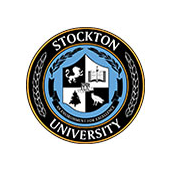
#11: Stockton University
Stockton University’s School of Health Sciences offers five nursing programs: a traditional BSN, an accelerated second degree BSN, an RN-to-BSN completion program, an MSN for aspiring adult-gerontology primary care nurse practitioners (AGPCNPs), and post-master’s certificates for both AGPCNPs and FNPs. In recent years, 94% of the school’s MSN students and 100% of its FNP students have passed their respective national certification exams. The undergraduate program demonstrates similar excellence: prelicensure BSN students have passed the NCLEX exam at an 89% rate over the past eight years. Stockton University has an on-campus simulation lab that mimics real-life experiences, with actors playing patients.

#12: William Paterson University
William Paterson University is the second-oldest of the nine state colleges and universities in New Jersey. It is also the third-most diverse of these institutions. The Department of Nursing offers baccalaureate, master’s, and doctoral degrees as well as graduate certificates. Undergraduate students can pursue a traditional BSN track, an accelerated second-degree program, or an RN-to-BSN completion pathway. Prelicensure students have averaged a stellar 96% NCLEX pass rate over the past four years. Graduate students can pursue several MSN specializations including adult-gerontology nurse practitioner, family nurse practitioner, nursing administration, and nursing education. All four focal areas are offered through both traditional (post-baccalaureate) and RN-to-MSN pathways. Post-master’s certificates are also available in the AGNP and FNP focal areas. Finally, the university offers a post-master’s, 41-credit-hour DNP program that can be completed in just seven semesters of fulltime study.
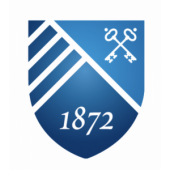
#13: Saint Peter’s University
Saint Peter’s University is one of twenty-eight Jesuit colleges and universities in the United States, and the only such institution in New Jersey. Founded as a liberal arts college for men in 1872, the school now serves a coed population of 3,500 students across more than fifty programs. The School of Nursing offers several routes to a BSN degree including a traditional four-year program, an accelerated second bachelor’s degree, and an RN-to-BSN pathway offered both on-campus and online. Approximately a dozen prelicensure BSN students graduate each spring. These students have scored an 89% NCLEX pass rate over the past six years, including a perfect 100% pass rate in 2018. At the graduate level, the school offers an MSN degree for aspiring adult-gerontology nurse practitioners, a post-master’s certificate in the same field, and a part-time face-to-face DNP program that can be completed in 5.5 years.
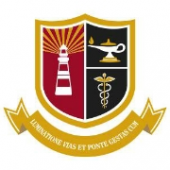
#14: Jersey College
The nursing school at Jersey College offers a licensed practical nursing certificate and a professional nursing associate degree. The ADN program has a traditional entry point for students new to nursing, as well as an advanced placement entry point for LPNs. Jersey College’s nursing curriculum includes classroom theory, challenging assignments, skill labs, and local clinical experiences. Across programs and campuses, students have enjoyed strong pass rates on the national licensure examination. For example, Teterboro students have scored an 87% NCLEX-PN pass rate since 2013 and an 85% NCLEX-RN pass rate since 2014. Ewing students have performed even more strongly, with a 92% NCLEX-PN pass rate since 2016 and an 88% NCLEX-RN pass rate since 2014.

#15: Trinitas School of Nursing
In partnership with Union County College, Trinitas School of Nursing conducts a cooperative nursing program that awards graduates both a TSON nursing diploma and a UCC associate degree. TSON has been named an NLN Center of Excellence four consecutive times, and the school’s curriculum places special emphasis on addressing twenty-first-century healthcare challenges. Approximately 130-160 students complete the diploma program each year, and these graduates have posted a first-time NCLEX pass rate of 85% over the past eight years. TSON graduates can pursue a bachelor’s degree from Saint Elizabeth University through its RN-to-BSN program at the UCC campus. In fact, SEU also conducts a master of science in nursing program at the UCC site, enhancing the local mobility options for TSON graduates.
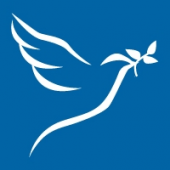
#16: Holy Name Medical Center Sister Claire Tynan School of Nursing
Founded by the Sisters of St. Joseph of Peace in 1925, the Holy Name Medical Center Sister Claire Tynan School of Nursing has grown from an inaugural class of 13 to one of the state’s largest coed Catholic diploma schools. The school offers both a two-year diploma in registered nursing and a 12-month diploma in practical nursing. Graduates from both programs perform admirably on their licensure exams, with a 93% NCLEX-RN pass rate and an 87% NCLEX-PN pass rate since 2013. Students in the RN diploma program may also earn an associate of applied science (AAS) degree from nearby Saint Peter’s University by completing just three additional college courses there.
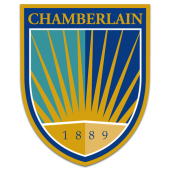
#17: Chamberlain University
In 2015, Chamberlain University announced its newest campus in North Brunswick. Nursing students at this location may earn a bachelor’s degree in just three years of fulltime study, saving them time and tuition money versus the traditional four-year pathway. The university’s 122-credit-hour BSN program combines conceptual learning with hands-on experience in the Chamberlain SIMCARE Center. Students also work alongside faculty, mentors, peers, and experienced nurses in a variety of clinical settings. Since the program’s inception, graduates from the North Brunswick campus have scored an 84% first-time pass rate on the NCLEX-RN national licensure examination.

#18: Saint Elizabeth University
Saint Elizabeth University has a proud 120-year history of educating nurses. The school offers several degree options including two BSN pathways (prelicensure, RN-to-BSN) and two MSN pathways (traditional, RN-to-MSN). The prelicensure BSN program just launched in the fall of 2019. RN-to-BSN students have a strong track record of success, including at least an 88% fulltime nursing employment rate for three consecutive years. The MSN curriculum provides both nursing education and nursing leadership tracks. The RN-to-MSN pathway is specifically designed for nurses with a bachelor’s degree in a non-nursing field. Saint Elizabeth University offers classes both on the home campus in Morristown and at a number of regional health centers in order to fit a professional work schedule.

#19: JFK Muhlenberg Snyder School of Nursing
Through a cooperative program with nearby Union County College, JFK Muhlenberg Snyder School of Nursing offers four different tracks toward registered nursing licensure. The generic program awards both a nursing diploma and an AS degree in just five semesters of study. Accelerated options are available for existing LPNs (LPN-to-RN transition track) and bachelor’s degree-holders in non-nursing fields (accelerated track). Finally, individuals seeking a direct path to a BSN degree may complete a collaborative program between Snyder, UCC, and Kean University. Across all tracks, Snyder School of Nursing graduates have scored an 87% first-time pass rate on the NCLEX licensure examination over the past eight years.
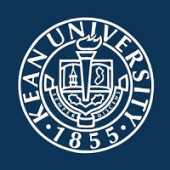
#20: Kean University
The Kean University School of Nursing offers educational preparation for nurses at the baccalaureate and graduate levels. Pathways include an online RN-to-BSN, a transculturally focused MSN with three areas of specialization, an RN-to-MSN for registered nurses with non-nursing baccalaureate degrees, and a DNP in educational leadership. The online RN-to-BSN program consists of 125 credits that may be completed in just three to four years part-time. Job placement rates for Kean’s nursing graduates are stellar, including a 97% job placement rate for RN-to-BSN graduates and a 100% job placement rate for MSN graduates over the past three years.
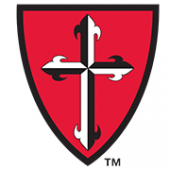
#21: Caldwell University
Established in 1939 as an institution of higher learning for women, Caldwell was the first college in New Jersey to award the bachelor of fine arts (BFA) degree. Today, the university conducts more than one hundred programs across twenty academic departments and schools. The School of Nursing and Public Health offers a BSN program that incorporates a strong liberal arts foundation, nursing coursework, and clinical experiences in a variety of healthcare agencies and community centers throughout the region. Simulation activities are integrated throughout the program to further develop students’ clinical skills. Over the past three years, BSN graduates have averaged a 90% pass rate on the NCLEX-RN licensure examination, including a stellar 96% pass rate in 2018. Caldwell University also offers an RN-to-BSN pathway and a new MSN degree in population health, both conducted fully online.
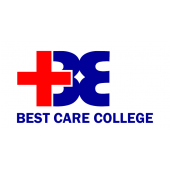
#22: Best Care College
Best Care College offers two options for aspiring nurses: a practical nursing certificate and an associate of science LPN-to-RN bridge program. The practical nursing certificate is a 50-week program that includes 1,488 hours of coursework, laboratory exercises, and clinical rotations. Day and evening classes are available. The program graduates approximately 30 students each year, with an impressive 89% first-time NCLEX-PN pass rate over the past eight years. The LPN-to-RN bridge program covers 18 courses over five trimesters. Thirty general education credits are required, and 36 additional credits are devoted to nursing. The inaugural LPN-to-RN graduating class achieved an excellent 91.7% first-time NCLEX-RN pass rate.
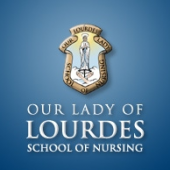
#23: Our Lady of Lourdes School of Nursing
Our Lady of Lourdes School of Nursing is the only source of Catholic nursing education in southern New Jersey. Since its founding in the early 1960s, the school’s three-year diploma program has added almost 2,000 new members to the nursing workforce. Through a cooperative effort with Camden County College, School of Nursing students can simultaneously earn a nursing diploma from Our Lady of Lourdes and an associate of science degree from CCC. Additionally, the school’s “Finish in Four” collaboration with Thomas Edison State University enables graduates to complete a BSN degree in just one additional year of study. Our Lady of Lourdes has achieved a 95% NCLEX pass rate since 2013, including a stellar 98.6% pass rate for the class of 2018.
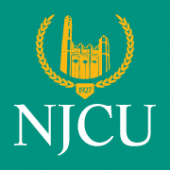
#24: New Jersey City University
New Jersey City University houses four distinct colleges and schools that collectively serve 8,500 students. The Nursing Department is part of the university’s College of Professional Studies. Nursing students can pursue an accelerated BSN as a second bachelor’s degree, an RN-to-BSN completion pathway, a master of science with a specialization in nursing education, or a post-master’s certificate in nursing education. NJCU students benefit from the university’s partnerships with numerous sites that offer a breadth of clinical experiences. Graduates are prepared for careers in a diverse range of healthcare settings including hospitals, case management, home health, and long-term care. Over the past eight years, the university’s accelerated BSN graduates have averaged an 84% first-time pass rate on the NCLEX licensure examination.
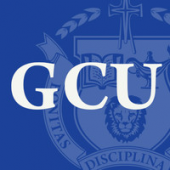
#25: Georgian Court University
Georgian Court University was founded in 1908 by the Sisters of Mercy. The university’s campus is both a National Arboretum Site and a National Historic Site. The Georgian Court-Hackensack Meridian Health School of Nursing offers a selective four-year BSN program that admits just forty students per semester. Students in the program benefit from the unique and innovative partnership between the university and Hackensack Meridian Health, which provides access to Magnet-certified clinical sites, masters- or doctorally-prepared faculty, and learning labs with state-of-the-art technology. Over the past eight years, BSN graduates have averaged an 81% first-time pass rate on the NCLEX licensure exam.
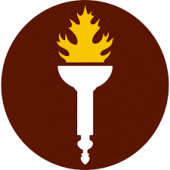
#26: Rowan University
Founded in 1923, Rowan University is a Carnegie-classified national doctoral research institution that serves nearly 20,000 students. The university’s Department of Nursing collaborates with the Division of Global Learning & Partnerships to deliver nursing programs that accommodate the busy schedules of working nurses. Programs combine online coursework, hybrid classes, and clinical experiences to ensure both convenient scheduling and access to nursing faculty. The Department of Nursing offers an RN-to-BSN completion pathway and an MSN degree. The MSN program has tracks for aspiring adult-gerontology acute care nurse practitioners, family nurse practitioners, psychiatric-mental health nurse practitioners, and nurse educators. All nursing programs at Rowan University are CCNE-accredited.
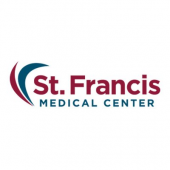
#27: St. Francis Medical Center School of Nursing
St. Francis Medical Center School of Nursing has educated aspiring nurses for over 110 years. The school’s long-standing diploma program was the first in the Trenton area accredited by the National League for Nursing. Today, under a cooperative agreement with Mercer County Community College, St. Francis graduates earn both an AS degree from MCCC and a nursing diploma from the School of Nursing. While St. Francis Medical Center is the primary clinical facility, the school also partners with a number of local healthcare providers, including St. Christopher’s Hospital for Children and University Medical Center at Princeton. The School of Nursing graduates approximately 30-40 new nurses each year, and they have averaged a 91% NCLEX pass rate over the past eight years. These same cohorts also reported an 82% graduation rate and a 94% employment rate in the field.
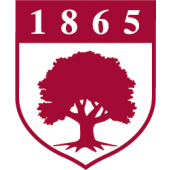
#28: Rider University
Rider University dates back to 1865, when it was known as Trenton Business College. In 1866, the school admitted its first female students and the first evening class occurred. Today, the university serves 5,000 students in seventy undergraduate and nearly thirty graduate degree programs, including business administration, education, fine and performing arts, liberal arts, music, and the sciences. Rider University’s nursing program sits within the College of Continuing Studies. This BSN program is designed for registered nurses who hold a current, unencumbered license and either an associate degree in nursing or a hospital diploma. The entire thirty-credit nursing core for this flexible RN-to-BSN bridge program is offered completely online.
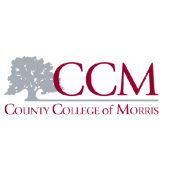
#29: County College of Morris
County College of Morris offers more than 45 associate degrees along with a full slate of certificate and workforce development programs. The Department of Nursing conducts an ADN program that incorporates a mix of general education and nursing coursework. Graduates are prepared for a diverse range of practice settings including medical-surgical nursing, critical care, emergency care, obstetrics, pediatrics, and psychiatric-mental health. Credits from the program are also readily transferable toward a four-year BSN at many state and private colleges. The ADN program typically graduates 100-120 new nurses annually. Since 2013, these students have achieved a solid 90% first-time pass rate on the NCLEX-RN licensure exam.

#30: Middlesex County College
Middlesex County College serves more than 11,000 students across ninety degree and certificate programs. Among these many offerings is an associate degree program in professional nursing with both day and evening/weekend options. The program offers a traditional entry point as well as an LPN-to-RN bridge option, which allows qualified LPNs to apply for advanced placement on a space-available basis. Middlesex County College’s ADN program typically graduates 60-80 students annually. Since 2013, these graduates have achieved an excellent 88% pass rate on the NCLEX licensure exam.
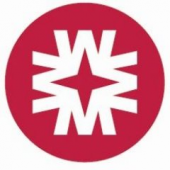
#31: Warren County Community College
Warren County Community College has provided affordable education for more than forty years. Accredited by the Middle States Commission on Higher Education since 1992, WCCC is one of the area’s top schools for transfer programs in the liberal arts and sciences. Credits are 100% transferrable to four-year institutions within New Jersey. WCCC’s nursing program is fully approved by the New Jersey Board of Nursing and accredited by the Accreditation Commission for Education in Nursing. The 60-credit-hour curriculum prepares students to sit for the NCLEX-RN licensure examination, assume entry-level positions in nursing, and/or transfer into a BSN program at a four-year college. The ADN program graduates a select cohort of approximately 15 students each year. These graduates have averaged a strong 92% first-time NCLEX pass rate over the past eight years.

#32: Monmouth County Vocational School District
Monmouth County Vocational School District provides career and technical training at 15 sites across New Jersey. Since 1958, MCVSD has produced more than 4,000 graduates who have established careers in industries like advanced manufacturing, culinary arts, and STEM. The programs at MCVSD award a certificate upon completion, including the LPN pathway. Approved by the New Jersey Board of Nursing, the program covers the practical nursing curriculum in three phases. Specific topics include community health, medical-surgical nursing, pharmacology, obstetrics, pediatrics, geriatrics, and psychiatric health. Monmouth County Vocational School District graduates a close-knit cohort of 10-20 LPN students annually. Over the past eight years, these graduates have achieved an exceptional 95% first-time pass rate on the NCLEX-PN licensure examination.
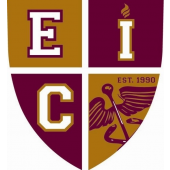
#33: Eastern International College
Eastern International College has campuses in Jersey City and Belleville. Prelicensure nursing students can pursue an ADN or BSN degree at either campus. The college also offers an online RN-to-BSN degree completion program for ADN-prepared nurses with an active, unencumbered license. The ADN program is a 70-credit-hour, two-year course of study, while the prelicensure BSN program is a 120-credit-hour, four-year course of study. Graduates of either program are prepared to sit for the NCLEX-RN licensure examination. Eastern International College students hold a solid 82% first-time NCLEX pass rate since the launch of the school’s nursing programs.
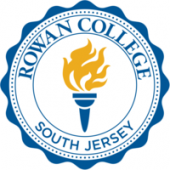
#34: Rowan College of South Jersey
Rowan College of South Jersey serves more than 6,000 students across two campuses in Gloucester and Cumberland Counties. Students can earn an associate degree or certificate in more than 120 programs. They may also earn an advanced degree at Rowan University or another four-year institution without leaving the RCSJ campus. The Nursing & Health Professions Division offers a practical nursing certificate and an associate degree in nursing. Both options prepare students for immediate employment in the field and to sit for the respective NCLEX licensure examination. Rowan College of South Jersey’s LPN program has maintained a perfect 100% first-time NCLEX-PN pass rate for the past eight years. Over that same timeframe, the college’s ADN program has graduated more than 100 students annually while averaging a 90% first-time NCLEX-RN pass rate.
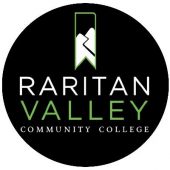
#35: Raritan Valley Community College
Raritan Valley Community College opened in 1968 as Somerset County College. When classes first began, the school had 229 students. Today, RVCC serves nearly 8,000 students enrolled in more than ninety associate degree and certificate programs. It was also New Jersey’s first community college to establish a selective Honors College. The college’s competitive nursing program boasts an 87% first-time NCLEX-RN pass rate over the past eight years. The rigorous ADN curriculum allows students to tailor their studies to a specific area such as cancer, elder care, emergency room triage, or pediatrics. Upon completion of the program, ADN graduates are prepared for immediate entry-level employment in the field or to seamlessly continue their education and earn a BSN degree at Kean University.
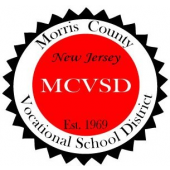
#36: Morris County School of Technology
Morris County School of Technology is part of the Morris County Vocational School District, which provides education and career training programs to high school students and adult learners. The school offers a range of program options for individuals seeking a career in the healthcare industry, including phlebotomy technician, patient care technician, physical therapy aide, and licensed practical nurse. The LPN program is designed for students with a high school diploma who are new to nursing. The curriculum integrates nursing theory with clinical practice to train nurses for positions in hospitals, home healthcare settings, clinics, nursing homes, and physician’s offices. Approximately 20-30 graduates annually are prepared to sit for the NCLEX-PN licensure examination. Students from Morris County School of Technology have averaged an 84% first-time NCLEX pass rate over the past eight years.
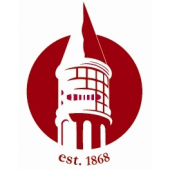
#37: Bloomfield College
Bloomfield College is a workforce-ready institution that provides more than fifty degree options across seven academic divisions. The Frances M. McLaughlin Division of Nursing offers both a traditional prelicensure BSN program and an RN-to-BSN degree completion pathway. Prelicensure students have enjoyed an impressive 93% first-time NCLEX pass rate over the past eight years. Nursing students engage in intensive coursework, simulation lab experiences, and clinical rotations at local hospitals and healthcare centers. The curriculum deeply explores the topics of nursing research, evidence-based practice, clinical judgment, nursing skills, therapeutic communication, teamwork, and collaboration. The traditional BSN is a four-year program, while the RN-to-BSN pathway is an accelerated program that requires just 15-18 months to complete. The Bloomfield College nursing program is accredited by the Commission on Collegiate Nursing Education.
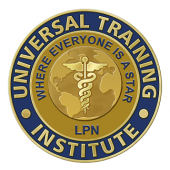
#38: Universal Training Institute
Universal Training Institute is accredited by the Accrediting Council for Continuing Education & Training. The school offers a practical nursing program that features small class sizes, day and evening schedules, state-of-the art simulation labs, and a job placement rate of approximately 80%. Students in the day program can expect to complete their studies in 12 months, while evening students can complete the program in 18 months. The curriculum’s major components include anatomy and physiology, pharmacology, medical-surgical nursing, and introduction to nursing. Clinicals take place at local healthcare facilities. Universal Training Institute’s practical nursing program graduates 50-60 students annually, with a solid 82% first-time NCLEX pass rate over the past eight years.

#39: Eastwick College
Eastwick College is the first nationally accredited school approved for prelicensure instruction by the New Jersey Board of Nursing. It is also the state’s first private college approved for candidacy by the National League for Nursing. Eastwick offers a traditional 18-month LPN diploma program at its Hackensack and Ramsey campuses, with an emphasis on vital skills like physical assessment, wound care, intravenous therapy, and medication administration. The Hackensack campus also features a bilingual LPN track with 600 hours of English as a second language (ESL) training, to ensure that students master the necessary medical terminology. In total, Eastwick College graduates approximately forty new LPNs annually. Over the past eight years, the school has maintained strong NCLEX pass rates across all campuses and programs, including Hackensack (88%), Ramsey (88%), and bilingual (89%).
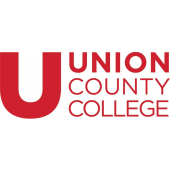
#40: Union County College
Union County College serves nearly 20,000 students across three campuses and two satellite locations. More than 60 programs leading to an associate degree or certificate are offered in areas such as business, STEM, and health. The UCC Division of Allied Sciences has a practical nursing program that requires 52-53 credit hours of coursework. The LPN curriculum takes four semesters to finish, and it awards a certificate upon completion. All courses take place during the day, while clinical rotations may be scheduled during the day, evening, or weekend to ensure that students engage in a variety of client care experiences. The LPN program typically graduates 40-60 students annually. These graduates have averaged an 88% first-time NCLEX pass rate over the past eight years.
